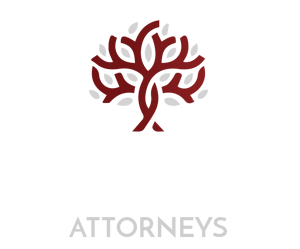Debt recovery can be a complex and frustrating process, with various challenges that can hinder successful outcomes. Whether dealing with non-responsive debtors, disputed debts, or cross-border recovery, understanding these challenges and how to overcome them is crucial for businesses and individuals alike. This article provides strategies to address common debt recovery obstacles effectively.
Dealing with Non-Responsive Debtors
One of the most common challenges in debt recovery is dealing with non-responsive debtors. These debtors ignore communication attempts and avoid paying what they owe. Here are some strategies to address this issue:
- Persistent Communication: Consistent and persistent communication is key. Utilise multiple communication channels such as phone calls, emails, letters, and even personal visits if necessary. Keep a record of all communication attempts to demonstrate diligence.
- Legal Notices: Sending formal legal notices can often prompt a response. A lawyer’s letter or a demand notice can indicate the seriousness of the situation and the potential for legal action if the debt is not settled. This can motivate debtors to respond and negotiate payment.
- Engage a Debt Collection Agency: If initial attempts to contact the debtor fail, consider engaging a professional debt collection agency. These agencies have the expertise and resources to handle non-responsive debtors and can often achieve better results.
- Leverage Technology: Use automated reminder systems and debt recovery software to manage and track communication with debtors. These tools can help maintain consistent follow-up and ensure no communication attempts are missed.
Addressing Disputed Debts
Disputed debts can complicate the recovery process, requiring clear documentation and effective negotiation to resolve. Here’s how to handle disputed debts:
- Provide Clear Documentation: Ensure all documentation related to the debt is clear, accurate, and readily available. This includes contracts, invoices, receipts, and any correspondence related to the debt. Clear documentation helps establish the legitimacy of the claim.
- Communication and Negotiation: Engage in open communication with the debtor to understand their concerns and reasons for disputing the debt. Negotiation and mediation can often resolve disputes without escalating to legal action. Be prepared to offer flexible payment plans or settlements to reach an agreement.
- Seek Legal Advice: If disputes cannot be resolved through negotiation, seek legal advice. A lawyer specialising in debt recovery can provide guidance on the best course of action and represent your interests in any legal proceedings.
- Alternative Dispute Resolution (ADR): Consider alternative dispute resolution methods such as arbitration or mediation. ADR can be a quicker and less expensive way to resolve disputes compared to traditional litigation.
Navigating Cross-Border Debt Recovery
Recovering debts from international debtors presents unique challenges due to differing legal systems, regulations, and cultural practices. Here are strategies to navigate cross-border debt recovery:
- Understand International Laws: Familiarise yourself with the laws and regulations governing debt recovery in the debtor’s country. Understanding these laws can help you identify the most effective recovery methods and avoid legal pitfalls.
- International Treaties and Agreements: Leverage international treaties and agreements that facilitate cross-border debt recovery. For instance, the Hague Convention on the Recognition and Enforcement of Foreign Judgments can aid in enforcing court judgments across borders.
- Local Legal Representation: Engage legal representation in the debtor’s country. Local lawyers have the expertise and knowledge of the legal system to effectively pursue debt recovery on your behalf.
- Cultural Considerations: Be mindful of cultural differences that may impact communication and negotiation with international debtors. Understanding cultural norms can enhance your approach and improve the chances of successful debt recovery.
- International Debt Collection Agencies: Consider hiring international debt collection agencies that specialise in cross-border debt recovery. These agencies have the resources and networks to pursue debts in different jurisdictions effectively.
Debt recovery presents various challenges, from dealing with non-responsive debtors and disputed debts to navigating cross-border complexities. By employing persistent communication, providing clear documentation, understanding international laws, and seeking professional assistance when needed, you can overcome these obstacles and improve your chances of successful debt recovery. Being proactive and strategic in your approach ensures that you can recover owed debts efficiently and effectively, minimising financial losses and maintaining healthy cash flow.
Book a consultation with Nicola Le Roux at Le Roux Attorneys to take the next step. And, to keep up to date with all we offer, follow us on social media – LinkedIn and Facebook.

